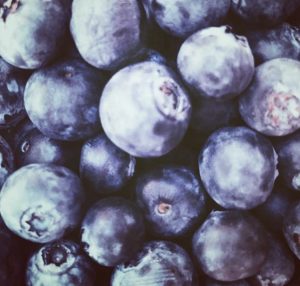Memory is like a human computerized filing cabinet that contains everything that we have learned and experienced. It stores so much information, and its crucial to be able to retain knowlege for everyday life and skills. For anyone who is in school, or studying for a very important exam and even out in real life, especially when we get older, we must keep our filing system in our brain fresh and healthy. The brain is one of the most important organs in the body. We need it to live, thrive and function for everyday life. When we don’t care for our brain as well as we should, it can perform poorly, then also deteriorate. I have done some research on ways to imporove memory as I was preparing for the most important exam of my life, the state board exam to become an LVN. It is so crucial to keep your mind and soul health. This is what I have collected on my venture to passing my exam!
Avoid Sugar
High Blood Sugar Levels are linked to memory loss.
New research suggests that people with high blood sugar levels, even those who do not have diabetes, may have an increased risk for developing cognitive impairment. This is according to a study published in the journal of Neurology. Clinically, even if your blood sugar levels are ‘normal,’ lower blood sugar levels are better for your brain in the long run with regard to memory functions as well as memory-relevant brain structures like the hippocampus. Consume a diet rich in fiber, vegetables, protein, healthy fats and whole-grain products, and undertake physical activity on a regular basis. Choose fruit over candy, and raw chocolate/cacao over sugary, conventional chocolate. Fruit has antioxidants that protect the brain cells from damage and raw chocolates are natural anti-depressants and lowers anxiety.
Blueberries
Scientific Studies have shown that these high antioxidant berries, which contain flavonoids boost cognition results in the brain mainly between flavonoids and proteins complementary to brain-cell structure and function. Blueberries also delay neurological decline and protect delicate brain structures against oxidative damage.
Anthocyanins, a chemical compound found in Blueberries, improves function of brain cells, with corresponding behavioral improvements.
A blueberry-enriched diet has been shown to protect against loss of brain cells seen with different types of brain injury and aging, as well as against associated impairments in memory, learning, and coordination.
A study involving older adults, consuming blueberries everyday for 12 weeks was enough to improve scores on two different cognitive tests of cognitive function, including memory. The authors of this study were enthused by the results and proposed that blueberries might turn out to be beneficial not only for correcting memory, but for slowing down the onset of other cognitive problems connected to the aging process.
Coconut Oil + Coffee
Otherwise, “Smart Coffee,” Rocket Fuel or “Bulletproof Coffee”-without the grass fed butter. Coconut Oil is mostly made of Medium Chain Fatty Acids. These are processed immediately by the liver, lessening the need for glucose production and not allowing the fat to be stored. When Medium Chain Fatty Acids are processed by the liver, they also produce ketones, which can be used by most cells in the body for energy, especially in the brain.
As we age, our brain’s ability to metabolize glucose for energy declines, especially for those who have metabolic disorder or insulin resistance. But MCT-created ketones can be used as cellular fuel in the brain when glucose is not available.
A 2004 study was published in ‘Neurobiology of Aging’ journal, determining coconut oil MCT’s improved cognitive function amount in an elder group with memory problems as well as Alzheimer’s disease. Twenty elder subjects were fed either coconut oil or placebos on different days. Some of the Alzheimer’s group had excelled scoring on the special Alzheimer’s cognitive rating scale- all of them demonstrated better portion recall soon after consuming each dose of coconut oil. And this study wasn’t spread out for a long period of time either because the elderly group had gotten immediate positive results from only a single dose of coconut oil correlated to placebos.
Another story in 2009-10 is MD Mary Newport’s husband who was deteriorating from Alzheimer’s so terribly he couldn’t perform daily functions without being micromanaged. When she fed him coconut oil, he began making a remarkable comeback from almost total dementia to being able to start and finish tasks and remember people and events. MD Mary Newport found Coconut Oil as a successful dementia food medicine without side effects that normally pharmaceutical drugs would possess.
Onto the subject of coffee- A study published in 2015 evaluated 1,445 people-scientists found that consistently sipping one to two cups of coffee each day is associated with a significant reduction in the risk of mild cognitive impairment, which is a precursor to dementia and Alzheimer’s- in comparison to those who never or rarely consumed coffee. This shows that caffeine may have a neuroprotective effect.
One other simple note is that coffee is a dynamic psychoactive stimulant. Scientists say that, “Caffiene could in part compensate the cognitive decline in older individuals because it’s effect on vigilance and attention mainly in situation of reduced alertness.”
How do these two come into play together?
Drinking Bulletproof coffee at least 30 minutes or even an hour before breakfast provides the body with healthy fats that are to improve mental function, slow down the effects of caffeine entering the blood stream (it benefits blood sugar) and will jumpstart your digestion before food is consumed. If consumed with a meal, the fats will more likely upset the stomach and may not get the same brain boosting benefits.
All you have to do is start the day with coffee blended with coconut oil and coconut milk/cream, and you have an all Natural Latte!
Vitamin B12 & Folate
Vitamin B12 in combination with Folic Acid helps maintain memory.
Vitamin B12 plays an essential role in red blood cell formation, cell metabolism, and nerve function. Vitamin B-12 supplements do help people with a deficiency. Vitamin B12 is also more common in those with certain conditions, like digestive problems and some types of anemia. Low vitamin B12 can cause fatigue, weakness, memory loss, and other problems with the nervous system. B12 is also in food items like Sprouted Multigrain Bread, Fortified Cereals, Nutritional Yeast, Soy/ Tofu, Sea Veggies such as Seaweed, Algae, and especially Spirulina.
Numerous Studies have determined that high levels of Folate may assist in warding off cognitive decline and improve mental sharpness for memory as well as mental processing speed.
Folate is basically in whole foods, such as Dark Leafy Greens, Asparagus, Broccoli, Citrus Fruits, Beans & Lentils, Avocado, Brussel Sprouts, Seeds & Nuts, Cauliflower, Celery, Carrot, Squash.
Embrace Self-Care
“I came that they may have life and have it abundantly.”-John 10:10
Nurses benefit by taking care of others, but not beneficial about taking care of ourselves. Remind any student, to try to take care of yourself. You’re going to be stressed. There is going to be a lot of studying. Find a way to de-stress, whether its yoga, some type of exercise, getting your sleep, eating well. Plan some type of de-stressful exercise during the week. Just like brushing your teeth, and washing your face, we must also take care of our mind. Our mind is so useful in many situations, we must maintain calmness so we don’t go totally mental.
Mental & Physical Exercise
You only have one brain, composed with the same neurons that you were born with, plus a few added to some narrowly specific areas. Once they begun to deteriorate, they can be saved and even made stronger. There was a study in the 1960’s with two groups of lab rats. The first group was basically locked away in a security prison. They had food to keep them alive from day to day, but their brains received little stimulation. There were no rat games, puzzles, or rat get togethers to break boredom. The second group was basically in a version of rat school, complete with recess. They had toys and balls for play, challenging mazes to explore, exercise equipment to get the blood pumping to their muscles and neurons, and the best of all, they had other rats to share these experiences with. When they set against the two in timed contests, the rats that had lived in the mentally and physically invigorating environment performed much better. The gathered concrete evidence of what goes on in the mind manifests itself in the physical state of the brain. Learning strengthens the organ of the brain just as exercise strengthens muscles in the legs, arms, and abdomen. Old rats, like humans, have brains they can reshape in response to new experiences, a condition known as plasticity.
Gingko Biloba
For thousands of years, leaves from the Ginkgo Biloba tree have been a common treatment in traditional ancient Chinese medicine. In the U.S., many take Ginkgo supplements in the belief that they will improve memory and sharpen thinking. It has been the most widely prescribed medication by physicians in Germany since 1988.
Gingko is so valuable for an abundance of all things! Not only is it good for improving memory, it also improves blood flow to the extremities, aiding in the proper management of stress, and revitalizes the body! Gingko Biloba improves short-term memory, reduces mental fatigue, and promotes fast and accurate thinking.
Gingko enhances memory from the fact that it contains high levels of flavonoids and terpenoids, which are antioxidants that provide protection against oxidative cell damage from harmful free radicals. Ginkgo is also a nootropic agent. Which means that it is useful for enhancing memory and concentration.
A study in 2001 published in The International Journal of Neuropyschopharmacology, the researchers administered ginkgo extract to 61 healthy study participants. The study was randomized, placebo-controlled and double-blinded to eliminate bias. After 30 days of supplementation with ginkgo, the study subjects were given the same set of standard neuropsychological tests that they took at the start of the trial. The result of this trial showed that the ginkgo extract administered produced statistically significant improvement in working memory, information processing and decision making.
Taking Ginkgo Biloba for memory may be related to the way that cholinesterase inhibitors work. Cholinesterase (AChE) is the enzyme by which acetylcholine is hydrolyzed, or broken down. It essentially works to control levels of acetylcholine in the brain and make sure there is not too much of this neurotransmitter interacting with receptors. But sometimes by interfering with this enzyme, we can increase acetylcholine levels to cause improvements in memory formation, retention and recall. Acetylcholine is the key neurotransmitter involved in basic cognitive function. Ginkgo maintains choline and acetylcholine in the brain, which in turn promotes healthy growth of neural structures like neurons, and the synaptic connections that form between them. These connections are the base of how memories are formed and accessed.
Because Gingko increases blood circulation to all parts of the body, it also increases blood circulation to the brain, which in turn leads to alertness, speed of thinking, and memory improvement. Some evidence suggests that taking Ginkgo in combination with Panax Ginseng can improve memory better than the herb alone.
Ginseng
Ginseng and Gingko are basically partners in crime! A 2000 study in Psychopharmacology showed that a combination of Panax Ginseng and Ginko Biloba may help enhance memory. Panax Ginseng is used for improving thinking, concentration, memory and work efficiency.
Panax Ginseng has been examined to be an energizer, normalizer and stress reducer.
It is considered to be an adaptogen. An adaptogen is a plant substance that can increase resistance to stress of any kind, either mental or physical and can invigorate all parts of the body.
A lot of students take this type of Ginseng (Panax) while studying and taking tests as it is believed to sharpen concentration and memory and make learning new subjects easier.
Get Enough Sleep
We need to sleep to recharge our body and our brain. Lack of adequate sleep disturbs mood, motivation, judgment, and our approach of events. While our body may be resting, our brain is active in converting networks between events, sensory input, feelings, and memories. Therefore, deep sleep is a crucial time for the brain to make memories and links. Animal and human studies propose that the quantity and quality of sleep have a deep impact on learning and memory. A sleep-deprived person cannot focus attention greatly and therefore cannot learn efficiently. Having more proper sleep will help you remember and process things better.
There are three functional terms to describe the exact mechanism between learning and memory. Acquisition assigns the introduction of new information into the brain. Consolidation defines the processes by which a memory becomes stable. Recall describes the ability to access the information (whether consciously or unconsciously) after it has been stored.
Acquisition and Recall occur only during wakefulness, though research suggests that memory consolidation takes place during sleep through the strengthening of the neural connections that form our memories. Although there is no agreement about how sleep makes this process possible, many researchers think that specific characteristics of brainwaves during different stages of sleep are combined with the formation of particular types of memory.
References:
https://www.medicalnewstoday.com/articles/267727.php
http://www.sci-news.com/medicine/blueberry-juice-brain-function-adults-04733.htm
http://www.neurobiologyofaging.org/article/S0197-4580(03)00087-3/abstract#/article/S0197-4580(03)00087-3/fulltext
https://www.iamalpham.com/index.php/topics/vitamin-b/
https://www.webmd.com/vitamins-and-supplements/supplement-guide-ginkgo-biloba
https://link.springer.com/article/10.1007/s002130000533
Sweeney, Michael S.; Green, Cynthia R. Your Best Brain Ever. Washington D.C., 2014. Print.
https://www.webmd.com/sleep-disorders/sleep-deprivation-effects-on-memory#1
Photos: Bluberries & Coffee by Suz del Mar
Photos: Suz del Mar (yoga) & Skyler Dennis (running) by Nolan Perry




